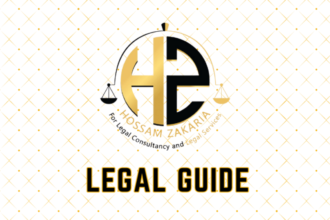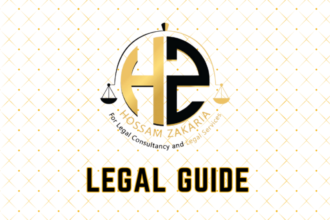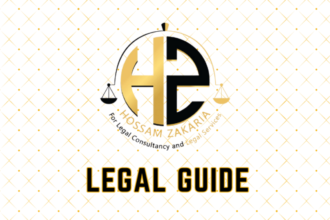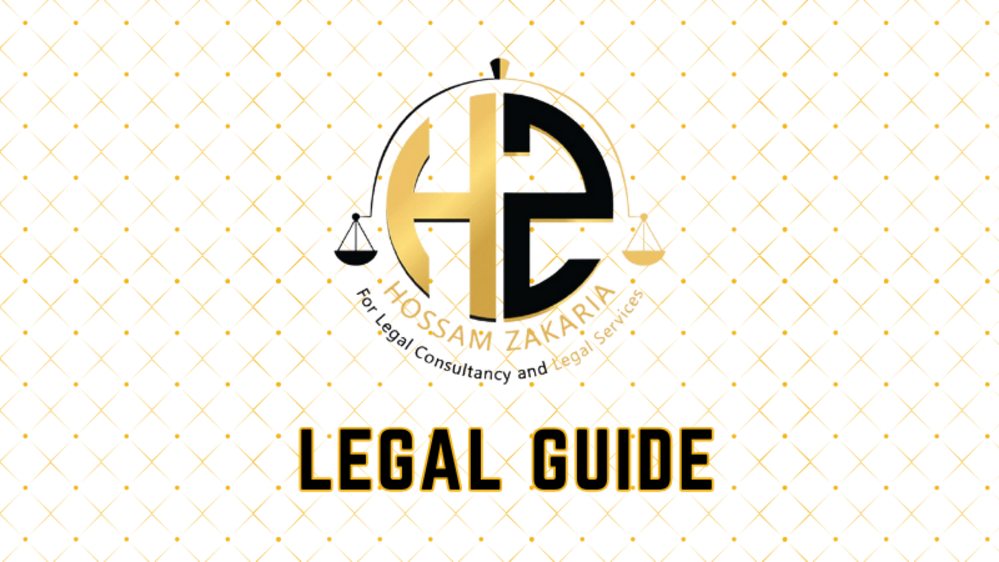Introduction
In the rapidly evolving business landscape of the Gulf region, ensuring cross-border dispute resolution effectiveness is paramount—particularly for UAE businesses that operate or invest in Saudi Arabia. With the Kingdom’s growing economic diversification, increased foreign investment, and regulatory reforms, commercial relationships between Saudi Arabia and the UAE continue to flourish. Yet, this dynamic also brings complex legal risks, chief among them the enforceability of arbitration awards—an area shaped by intricate national laws, international conventions, and recent legislative updates.
This in-depth article provides UAE businesses, legal managers, HR professionals, executives, and in-house counsel with authoritative, actionable guidance on achieving enforceable arbitration awards in Saudi Arabia. We analyze the legal frameworks, practical hurdles, compliance strategies, and recent developments that impact cross-border dispute resolution. Readers will gain both structured, professional insights and case-driven recommendations reflective of real-world commercial practice.
In light of recent updates—such as the 2023 amendments to Saudi Arabia’s Arbitration Law and increasing emphasis by the UAE government on transnational enforcement mechanisms—this topic is critical for any UAE entity seeking legal certainty when entering or executing contracts within Saudi markets. The following analysis draws upon official sources, including the UAE Ministry of Justice, the Federal Legal Gazette, the UAE Government Portal, and Saudi national laws, so readers can trust in its authority and applicability.
Table of Contents
- Overview of Arbitration Framework in Saudi Arabia and the UAE
- Recent Legal Updates and Their Impact
- Key Steps and Legal Criteria for Enforcing UAE Arbitration Awards in Saudi Arabia
- Risks and Challenges in Enforcement Procedures
- Compliance Strategies for UAE Businesses
- Case Studies and Practical Examples
- Conclusion and Forward-Looking Recommendations
Overview of Arbitration Framework in Saudi Arabia and the UAE
Legal Structure in Saudi Arabia
Saudi Arabia’s arbitration regime is primarily governed by:
- The Saudi Arbitration Law 2012 (Royal Decree No. M/34), modeled on the UNCITRAL Model Law, governing most arbitration proceedings conducted in the Kingdom.
- The Enforcement Law 2012 (Royal Decree No. M/53), addressing the recognition and enforcement of both domestic and foreign arbitral awards by Saudi courts.
- International conventions, chiefly the New York Convention of 1958, to which both Saudi Arabia and the UAE are signatories, facilitating mutual recognition and enforcement of foreign arbitral awards.
These instruments reflect the Kingdom’s ongoing efforts to align its arbitration system with global standards while balancing Sharia principles, particularly in matters involving public policy or usurious interest.
Legal Structure in the UAE
The UAE’s arbitration landscape is governed by:
- Federal Law No. 6 of 2018 on Arbitration, reflecting contemporary international standards and the UAE’s proactive approach to commercial dispute resolution.
- Federal Decree-Law No. 42 of 2022 On Civil Procedure Code (as amended), particularly regarding the enforcement procedures for foreign judgments and awards.
- Relevant institutional rules, such as those of the Dubai International Arbitration Centre (DIAC) and Abu Dhabi Commercial Conciliation and Arbitration Centre (ADCCAC).
For UAE businesses, understanding the interplay between these national laws and Saudi procedures is essential for contract drafting, risk mitigation, and dispute resolution.
Comparison Table: Key Differences in Arbitration Laws (Saudi Arabia vs. UAE)
| Aspect | Saudi Arabia | UAE |
|---|---|---|
| Main Law | Saudi Arbitration Law 2012 (M/34) | Federal Law No. 6 of 2018 |
| International Model | UNCITRAL Model Law | UNCITRAL Model Law adaptation |
| Public Policy Constraints | Strict Sharia compliance (no interest, gambling, etc.) | Public policy, but less restrictive |
| Enforcement Agency | Saudi Enforcement Courts | UAE Federal and local courts |
| New York Convention Signatory | Yes | Yes |
Recent Legal Updates and Their Impact
Saudi Arabia’s 2023 Reforms
In late 2023, Saudi Arabia introduced significant amendments to its Arbitration Law and complementary enforcement guidelines. These updates include:
- Enhancing the role of institutional arbitration and recognition of internationally accepted rules;
- Clarifying procedures for recognizing foreign arbitral awards;
- Establishing stricter timelines for enforcement actions;
- Explicitly referencing the New York Convention’s non-review of the merits principle.
These reforms build upon the country’s Vision 2030 and commitment to fostering a more business-friendly legal ecosystem for regional and international investors.
Enforcement Practice After the Reforms
The amendments have tangibly improved the predictability and efficiency of award recognition, but legal practitioners must remain cognizant of the Kingdom’s approach to “public policy”—specifically the possible refusal to enforce awards contrary to Sharia principles, a challenge that remains for interest claims or penalty awards.
Suggested Visual: A process flow diagram demonstrating the enforcement of a UAE arbitration award in Saudi Arabia after recent reforms.
Key Steps and Legal Criteria for Enforcing UAE Arbitration Awards in Saudi Arabia
Step 1: Initial Compatibility
Before commencing enforcement, UAE businesses should ensure their arbitration agreement and award meet Saudi compatibility standards:
- Written Agreement: The arbitration clause or agreement must be clear, in writing, and valid under both UAE and Saudi law.
- Sharia Compliance: The underlying contract and the arbitral award must not contravene Saudi public policy, particularly on issues such as riba (interest), uncertainty (gharar), and penalties. Awards containing interest or damages deemed “excessive” may risk non-enforcement.
Step 2: Submission to Enforcement Courts
The claimant must submit the following documents to the Saudi Enforcement Court:
- Duly authenticated original or certified copy of the arbitration award
- Copy of the arbitration agreement
- Evidence that the parties were duly notified of the proceedings and the award
- Arabic translation of all non-Arabic documents, certified by a Saudi-recognized translator
Additional supporting evidence may be required, such as proof of the award’s finality or non-appealability, and confirmation that the award is not currently subject to annulment.
Step 3: Court Review and Grounds for Refusal
Saudi Enforcement Courts undertake a procedural review rather than a substantive re-examination. However, enforcement can be refused if the award:
- Contravenes Sharia principles or Saudi public order
- Exceeds the scope of the arbitration agreement
- Was rendered by a tribunal improperly constituted under Saudi or agreed rules
- Lacks proper party notification or representation
- Has been annulled or suspended by a competent authority in the seat of arbitration
Step 4: Enforcement Orders and Execution
If no valid refusal grounds are established, the Enforcement Court issues an execution order. Saudi authorities may seize assets, garnish bank balances, or take other measures to satisfy the arbitral award.
Comparison Table: Enforcement Process (UAE vs. Saudi Arabia)
| Step | UAE | Saudi Arabia |
|---|---|---|
| Submission | To competent UAE court under Federal Law No. 6 of 2018 | To Saudi Enforcement Court |
| Language | Arabic (official translation as needed) | Arabic (certified translation required) |
| Grounds for Refusal | Limited to UNCITRAL grounds | Sharia non-compliance, UNCITRAL grounds, additional public order review |
| Execution | Asset seizure, bank freezing, travel bans (as permitted) | Asset seizure, bank garnishment, property sale |
Risks and Challenges in Enforcement Procedures
Core Challenges for UAE Award Creditors
- Public Policy and Sharia Restrictions: Saudi courts interpret “public policy” broadly, particularly regarding interest or penalty awards that may not be recognized under Sharia law.
- Jurisdictional Disputes: Counterparties may challenge enforcement on the basis of improper tribunal constitution, jurisdiction, or defective party service.
- Language and Documentation: Failures to provide appropriately authenticated and translated documents can delay or derail enforcement.
- Provisional Measures and Parallel Actions: Creditors are advised to be proactive in seeking interim relief in Saudi Arabia early, as delays may enable debtors to move or dissipate assets.
Compliance Risks Table
| Risk | Potential Impact | Mitigation Strategy |
|---|---|---|
| Non-compliance with Sharia principles | Award refused or partially enforced | Pre-award legal review/adapt clauses to exclude interest or impermissible penalties |
| Documentation errors | Delays or outright refusal | Engage certified translators; legalize all submissions |
| Improper service of process | Enforcement defense for debtor | Ensure formal notification pursuant to Saudi law |
| Concurrent proceedings | Process stalling | Monitor legal developments in both jurisdictions |
Compliance Strategies for UAE Businesses
To optimise the likelihood of successful arbitration award enforcement in Saudi Arabia, UAE businesses should implement the following best practice strategies:
Drafting Robust Arbitration Clauses
- Specify Saudi-seated arbitration or use regional centers if asset enforcement is anticipated in KSA.
- Explicitly address governing law, permissible remedies, and exclude interest/penalty language that may conflict with Sharia principles.
- Select arbitration rules that are Saudi-recognised (e.g., ICC, SCCA, or UNCITRAL).
Pre-Award Preparation
- Engage legal counsel familiar with Saudi enforcement standards to review procedural compliance throughout arbitration.
- Ensure all critical documents (contracts, notices, awards) are preserved and capable of swift authentication and translation.
Post-Award Enforcement Strategy
- Initiate enforcement swiftly to avoid asset dissipation.
- Engage local Saudi counsel to handle submission, ensure all translations, and manage communications with enforcement authorities.
- Monitor Saudi case law developments to anticipate potential obstacles.
Compliance Checklist (Suggested Visual/Table)
| Compliance Step | Status | Recommendations |
|---|---|---|
| Arbitration agreement validity | [ ] | Review by cross-border legal experts |
| Sharia compliance review | [ ] | Exclude or adapt interest-related claims |
| Document authentication and translation | [ ] | Engage accredited service providers early |
| Timely enforcement proceedings | [ ] | File immediately upon receipt of award |
Case Studies and Practical Examples
Case Study 1: Enforcing a Construction Award
Santos Group FZE (UAE) vs. Shams Real Estate SPC (KSA), 2022
A UAE developer won a multimillion-dollar DIAC award against a Saudi partner. The enforcement in Saudi Arabia was initially delayed due to ambiguities regarding the award’s inclusion of penalty interest. By engaging Saudi counsel and agreeing to waive impermissible interest, Santos Group ultimately secured payment on the non-interest portion of the award.
Case Study 2: Defective Notification
Case Example Based on Enforcement Court Ruling, Riyadh 2023
A UAE logistics company attempted to enforce a Dubai-seated arbitration award. The debtor challenged enforcement, arguing defective notification because one hearing notice was sent by email only. The court sided with the debtor, emphasizing the need for formal service under Saudi procedural law. This underscores the importance of observing all local procedural requirements during arbitration.
Hypothetical: Asset Dissipation Risk
A UAE exporter suspects a Saudi distributor of dissipating local assets and seeks to enforce a final UAE award. To maximize success, the exporter would need to file for enforcement in Saudi as soon as possible, potentially seeking a provisional asset freeze through Saudi enforcement courts—demonstrating the need for parallel asset monitoring and swift action.
Conclusion and Forward-Looking Recommendations
As cross-border commercial activity between the UAE and Saudi Arabia accelerates, effective and predictable enforcement of arbitration awards becomes a linchpin of regional business confidence. Despite substantial progress in both nations’ arbitration regimes—including the 2023 Saudi reforms—challenges remain, especially regarding Sharia-compliant enforcement and procedural nuances.
UAE businesses can substantially mitigate risks by:
- Carefully drafting arbitration and dispute resolution clauses;
- Proactively addressing Sharia and Saudi public policy considerations during contract negotiation and award drafting;
- Partnering with specialist legal counsel experienced in both UAE and Saudi enforcement systems;
- Maintaining robust records and monitoring post-award developments for potential asset protection.
Compliance strategies rooted in early planning, legal precision, and practical local knowledge will empower UAE companies to secure and execute arbitration awards within Saudi Arabia’s evolving legal framework. Regularly updating policies in light of new legislation and leveraging UAE government advisories (via Ministry of Justice and the UAE Government Portal) remains critical to sustained compliance and commercial safety as the region’s legal landscape continues to progress.



